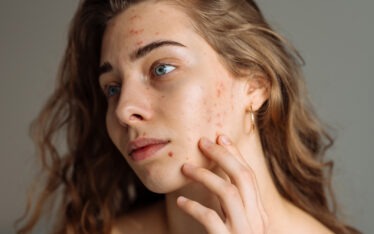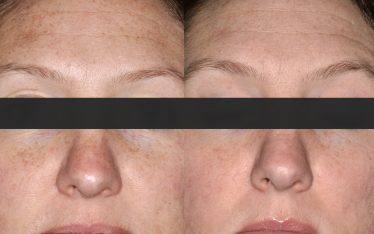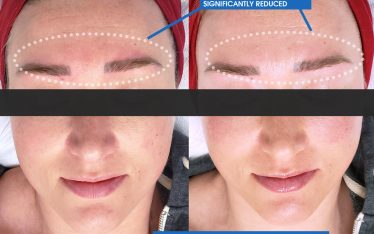If you’re still struggling with your acne, schedule an appointment with one of our PAs today!

Acne is one of my favorite dermatology conditions to treat. There are multiple factors or conditions that can affect this frustrating medical condition, including excessive oil production, hormones, bacteria, yeast, and even certain medications.
Sometimes a change in one’s skin care routine, avoidance of certain foods, or a reduction in one’s stress level is enough to decrease acne bumps. Even so, it’s common for topical and/or oral medication to be prescribed to treat the underlying causes of acne.
The first step to successfully treating acne has always been to listen to my patients. In fact, many people are surprised to learn that effective treatment of acne requires an individualized treatment plan based on each patient’s specific case, and a routine that’s effective for one patient may not work for another. I always enjoy working with each of my patients to find a personalized routine that will deliver positive results.
There are, however, a few basic activities that have a positive effect on virtually anyone’s skin. Those starting points for a healthy skin care routine include the following:
-Wash your face with a gentle cleanser twice a day. If you workout heavily, you should also wash your face or use a facial wipe to remove sweat afterward. Be careful: Washing your face more than three times a day can worsen symptoms.
-If your skin feels tight, flaky, or dry after washing your face, apply a gentle and light-weight facial moisturizer.
-To prevent acne scarring, apply sunscreen every morning after moisturizing. Many moisturizers have SPF added to them, which are great as long as they have an SPF of 3 or more. Be sure to look for sunscreen labeled “non-comedogenic” to indicate it should not worsen acne.
-If you are required to wear a mask to school or work, swap out your disposable mask daily or wash your cloth mask after each use.
-If you or your teenager participate in sports, be sure to clean helmets and chin straps with an alcohol-based wipe and wash jerseys in the washing machine after each use. Body pads should be removed from gym bags to dry out properly to prevent bacteria and yeast from growing.
Skin blemishes like acne are mostly treatable and, if not addressed, can lead to social and health frustrations over time. If you or someone close to you struggles with acne, schedule an appointment with one of our PAs today. We love to help people look and feel their best!
Chelsea Domeier PA-C


